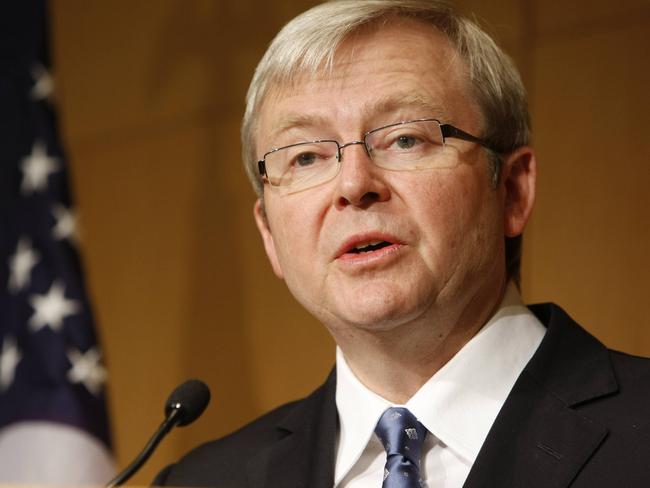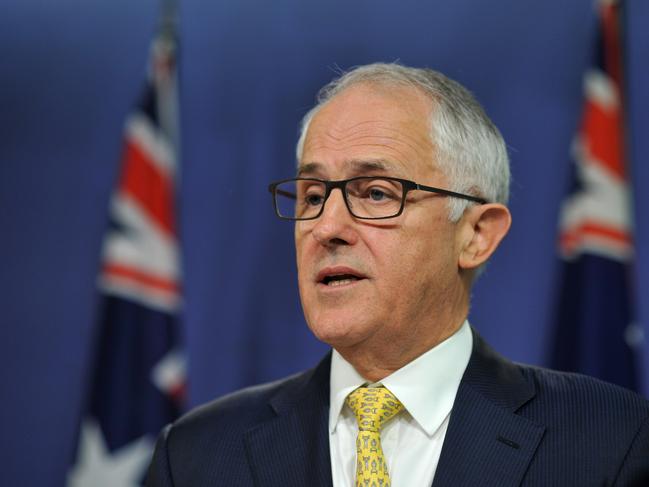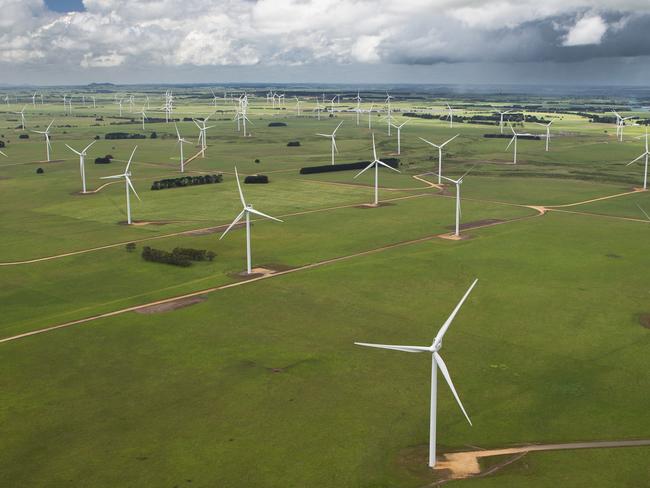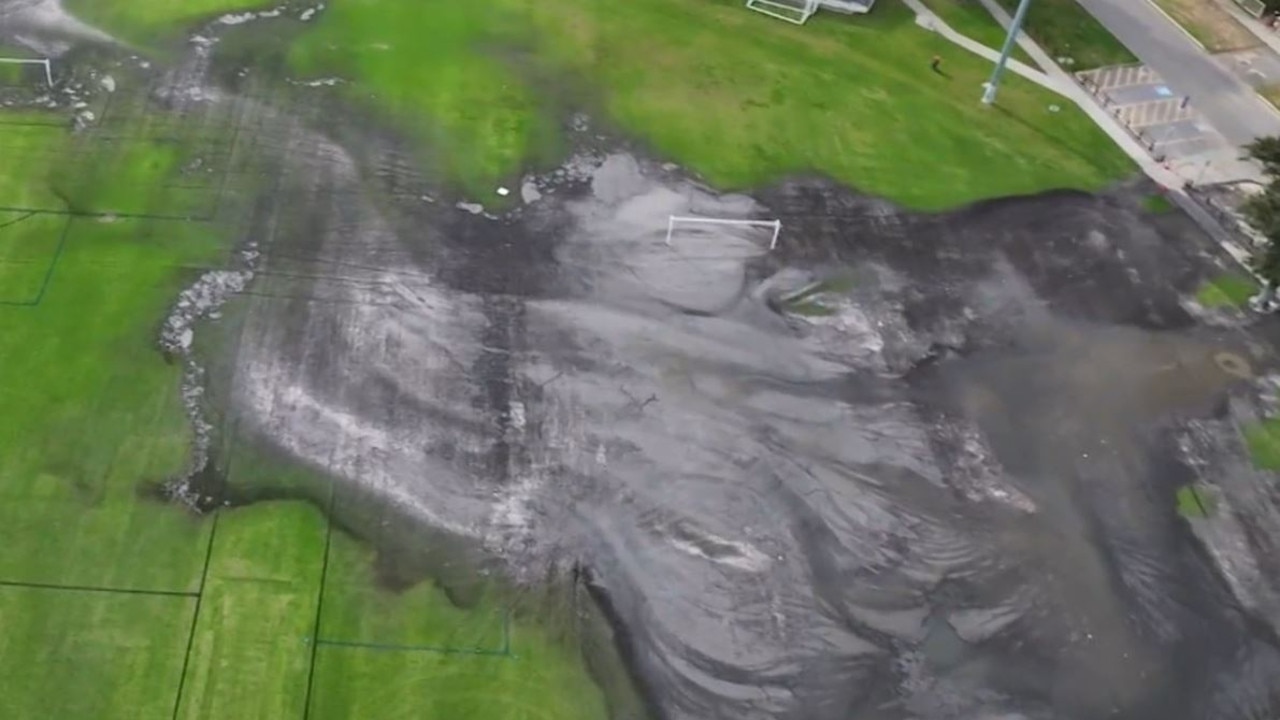Climate change: Renewable energy costs have dropped faster than predicted
Climate change has been argued about for years, but a major shift is underway that could finally end the climate wars that have divided Australia.
Environment
Don't miss out on the headlines from Environment. Followed categories will be added to My News.
The issue of climate change has so bedevilled all sides of politics that it has torn apart both major parties and become a poison chalice for at least three prime ministers.
In doing so it has crippled Australian democracy.
While conspiracy theorists might like to believe this has all been part of some sinister right-wing plot, the facts tell a very different story.
In 2007 both John Howard and Kevin Rudd went to the federal election promising an emissions trading scheme to tackle carbon emissions. For what it’s worth, News Corp mastheads almost unanimously editorialised in support of Kevin Rudd.
After an initial defeat in the Senate, Rudd again put his ETS before the upper house in December 2009. The Greens joined forces with the Liberal and National parties to vote it down.
Rudd now had a double-dissolution trigger to call an election on what he once called “the great moral challenge of our generation” but did not. It was believed his deputy Julia Gillard did not support such a move.
Rudd then junked his own ETS, withdrawing the legislation. He was then rolled by his own caucus and replaced by Gillard, from the party’s left, who famously went to an election promising “there will be no carbon tax under the government I lead”.

When a poorly run campaign forced Labor into a power-sharing agreement with the Greens the now-minority government reneged and introduced just such a tax with no electoral mandate. Indeed, if anything its only mandate on the issue was not to.
When Rudd rolled Gillard in 2013 one of his first actions was, in his own words, to “terminate the carbon tax”.
Later that year Tony Abbott was elected prime minister in a landslide, vowing to “axe the tax”.
In other words the only price on carbon in Australia that ever had a mandate from the people was the one Rudd took to the 2007 election, with the support of most News Corp mastheads, and which the Libs tore themselves apart over, the Greens voted against and Labor ultimately withdrew.

These are simply matters of fact.
What has changed since those toxic and farcical days hasn’t been any advancement on the political front — as Malcolm Turnbull found out the issue was just as vexed five years later — but what has been something akin to a new industrial revolution on the economic front.
Thanks to a storm of innovation and competition, business and industry has made renewable power more ubiquitous and affordable than even its greatest proponents dared to hope.
“It’s just staggering,” former chief scientist and now special Adviser to the government on low emissions technology Dr Alan Finkel said.
“If you went back to 2010 and looked at all the predictions of battery price for 2050 and now pick up a catalogue, you will see we’ve achieved those 2050 predictions already,” Dr Finkel said.

“We’re seeing the same with solar. Nobody back in 2000 or 2010 predicted solar and wind would be as cheap as they are today. Ninety per cent reduction in the cost of solar electricity per unit in a 10 year period or 11 year period from 2010 to now.”
In other words even just a decade ago it wasn’t even predicted — let alone known — that renewables would be so competitive and cheap.
And so when it comes to power bills, for example, there is no longer a question of any hip pocket pain for environmental gain. Instead it is a clear win-win.
Likewise when it comes to jobs and industry there is now an economic argument for net zero every bit as powerful as the environmental one.
That is why even green groups like the Australian Conservation Foundation are now pressing the industrial case for things like renewable-powered hydrogen, aluminium and steel.
“A target for Australia to reach net zero by 2050 is meaningless without a credible plan with policies and targets to drive down emissions this decade,” CEO Kelly O’Shanassy said.
“The solutions I’ve outlined are part of that credible plan because they address the reason the Prime Minister and Deputy Prime Minister have so often used to not take greater action: the economic cost.
“These solutions will create wealth and wellbeing, replacing the jobs and industries lost as the world moves away from fossil fuels. Harnessing these solutions is good for our climate, our economy, our jobs and our communities.”
And of course there is also the obvious fact that there is a growing global consensus in the lead up to the Glasgow summit that means that whatever the politics or ideology, Australia needs to act simply to preserve its international trading partners.
Plus there is clear political momentum within the Coalition government and geopolitical pressure from our closest allies in the US and UK.
All of this and more has led to a moment where after years of torturous inaction which Labor, the Liberals and the Greens all brought upon themselves there is now an unprecedented alignment of environmental benefit, economic prosperity and political will.
A moment that might finally bring an end to Australia’s climate wars.





